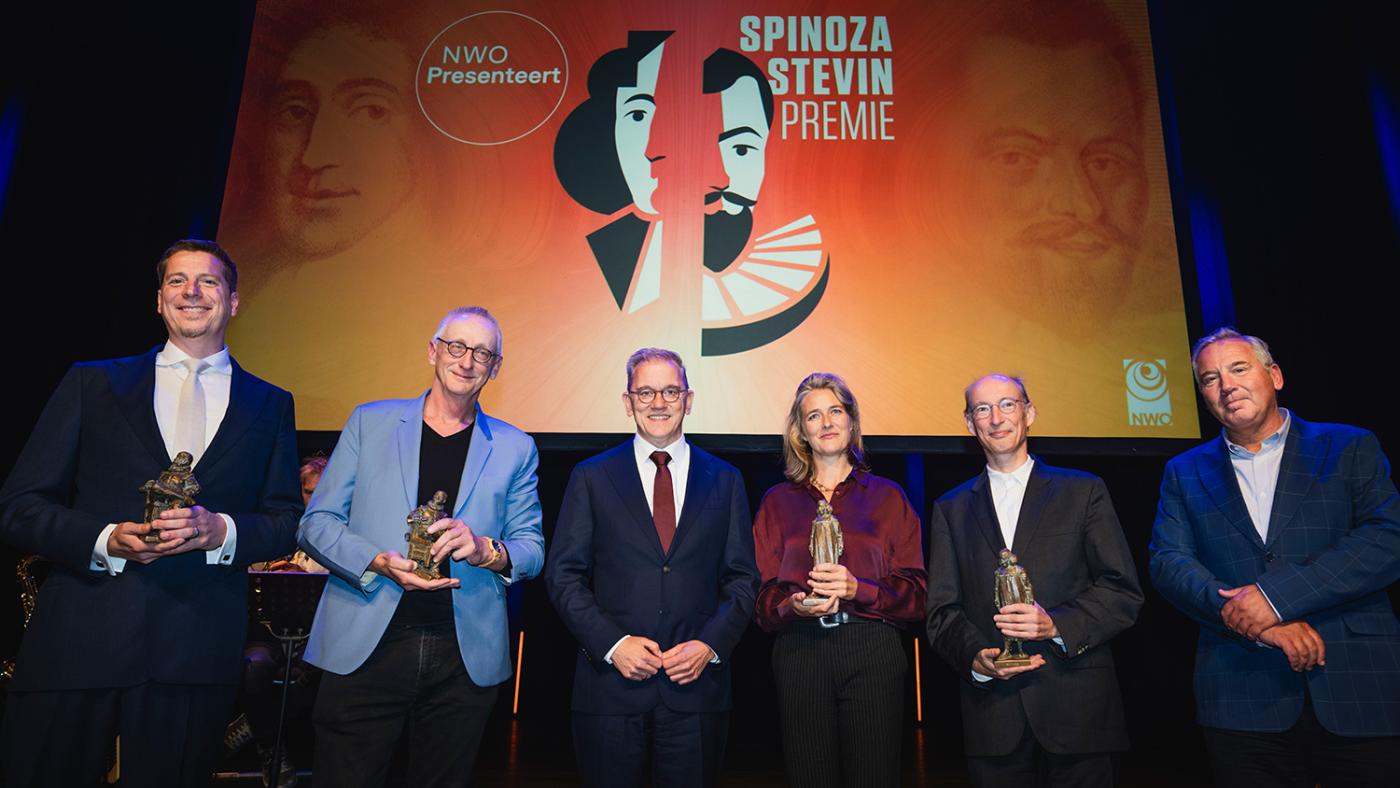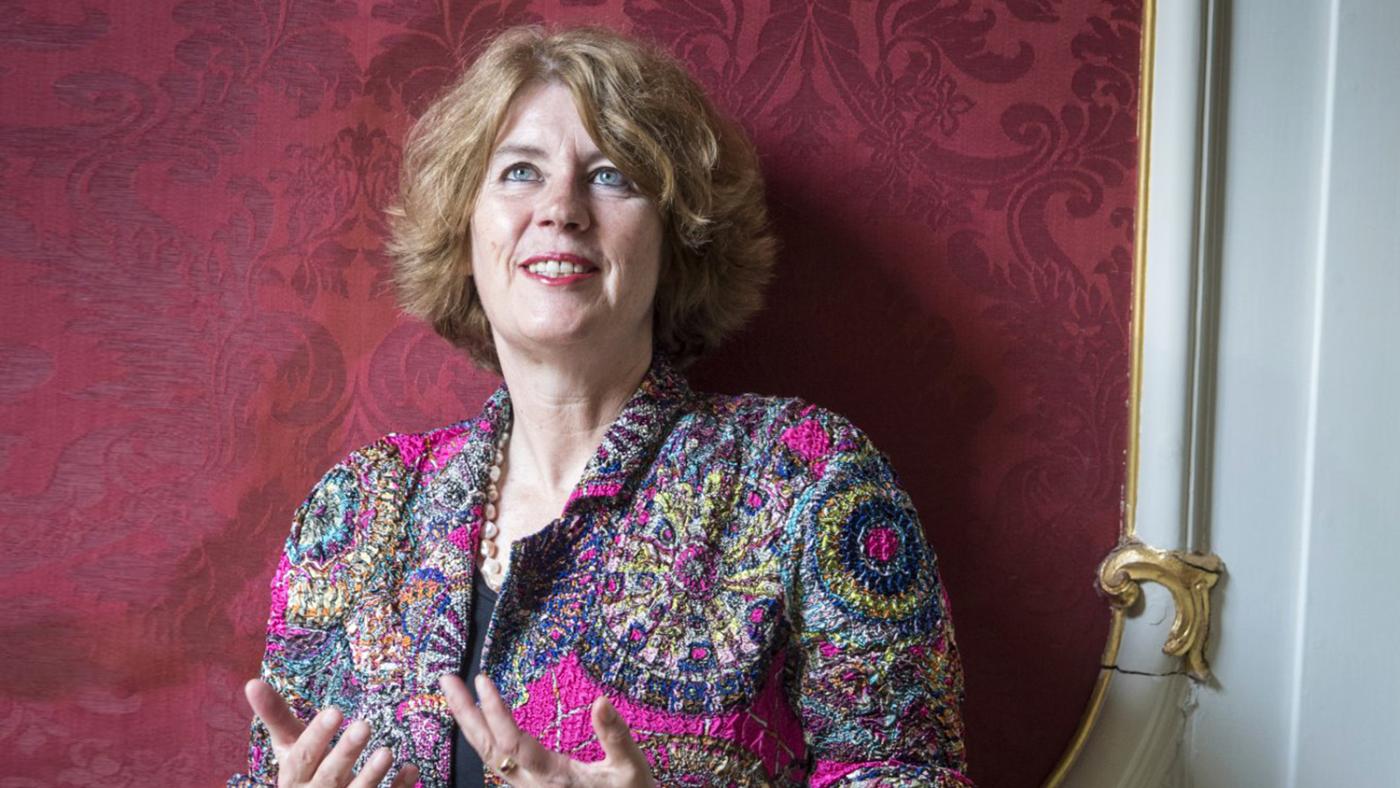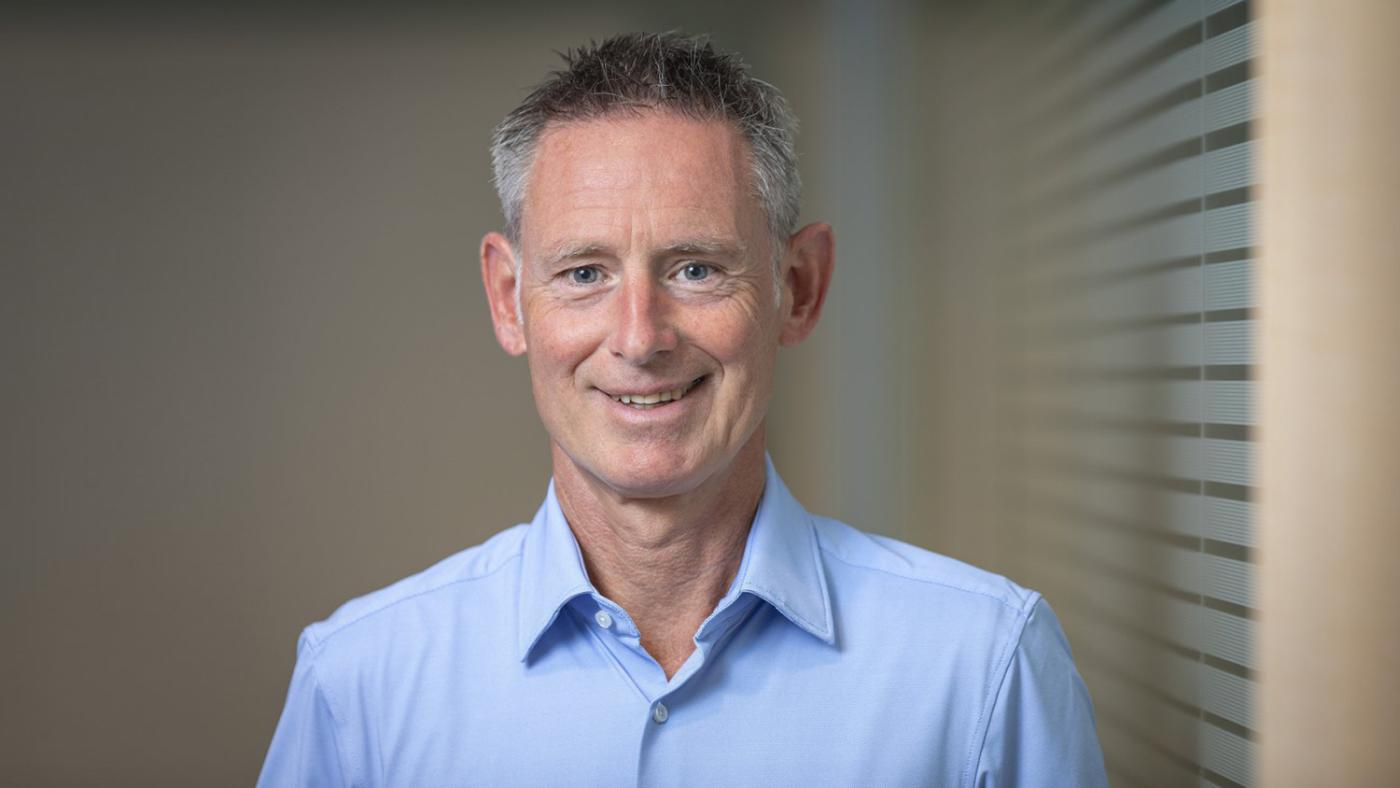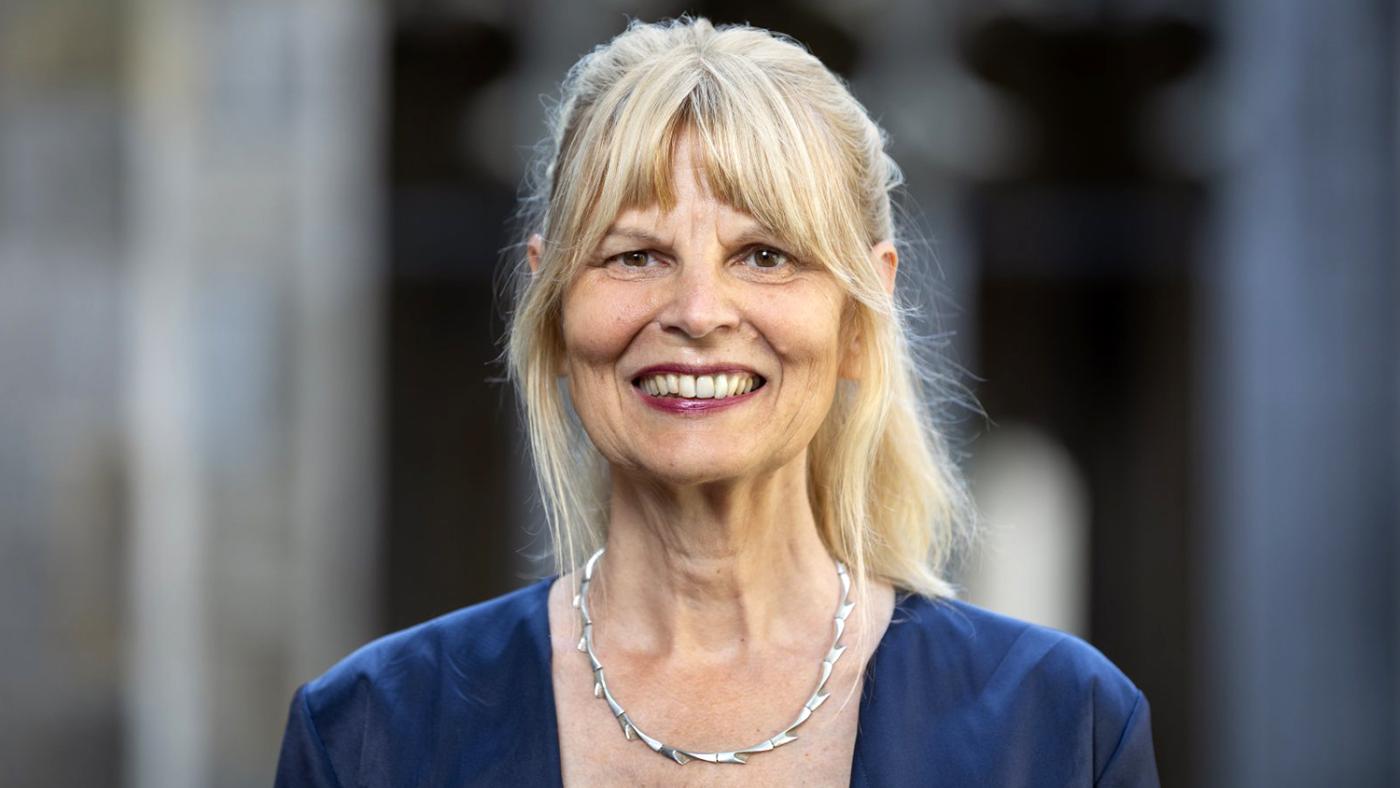The most prestigious scientific prizes of the Netherlands will be awarded tomorrow
‘Receiving such a prize is a huge sign of trust’

The Professor of Religious Studies, Birgit Meyer, has just returned from Ghana and Togo, where she is researching the origins of spiritual artefacts such as amulets and legba figurines. Around 1900, a German missionary brought the objects to Bremen, where they ended up in a museum. Alongside researchers from Ghana and Togo, as well as local voodoo priests, she hopes to gain a better understanding of the origins and meaning behind the objects. "This topic resonates enormously in West Africa, where tensions between indigenous religions and Christianity raise questions about African identity. Meanwhile, here in the Netherlands and Germany, we are engaged in a heated debate about our colonial past."
Meyer is using her Spinoza Prize, which she received in 2015 for her research on religion in Africa, to pay for the project and her recent trip. "The prize felt like a huge vote of confidence, but also an obligation to spend the money wisely,’ she says. Meyer wanted to use the funds to set up a research programme on the underexposed, material side of religion. "Traditionally, religious studies have primarily focused on sacred texts and the experience of faith, while the material side – such as objects, buildings, bodies, and food – has been neglected."
She initiated new lines of research, organised conferences and workshops in Utrecht, and developed teaching materials. These efforts attracted international expertise, including researchers from Brazil, Italy, Germany and several African countries. After ten years, her mission has finally been accomplished: the study of material religious studies is on the rise. The work of Meyer and her colleagues is internationally known as the "Utrecht School in Material Religions", and she is regularly invited to speak at conferences in Oxford, Cambridge and Poland – even outside her own field.

Prof. Dr. Birgit Meyer. Photo: NWO/Ivar Pel
More awards going to UU
The Spinoza and Stevin prizes are the highest scientific honours in the Netherlands. The Spinoza Prize, which honours scientific breakthroughs, was established twenty years ago. The Stevin Prize, a recognition for the utilisation of knowledge – by creating social or economic value, or contributing to public debate – was added seven years ago. Since 2023, both prizes have been awarded to no more than two scientists per year, and the amount laureates receive has dropped from 2.5 million to 1.5 million euros.
The prize is awarded by the Dutch Research Council (NWO). The researchers are nominated by the Royal Netherlands Academy of Arts and Sciences (KNAW), Dutch universities and organisations such as the employers federation (VNO-NCW) and the Dutch Network of Women Professors (LNVH). Since 2016, the number of Spinoza and Stevin prizes awarded to Utrecht University has more than doubled from 11 to 23. This makes UU the second university with the most Spinoza and Stevin prizes in the past decade, only behind Leiden University, which received its 31st prize this year.
This year, we're seeing two laureates from UU once again: Ingrid Robeyns got a Stevin Prize for her work in Political Philosophy and Ethics, while Thijn Brummelkamp received a Spinoza Prize for his research into Genetic Engineering. What awaits these new winners, and what can they learn from how previous laureates handled their millions?
Strategic allocation
After the winners are announced, they have a few weeks to write a five-year spending plan. This is usually done quickly, as most researchers often have projects and ideas already in the pipeline. Besides, the spending plan only needs to be two A4 pages long, according to former winner Corné Pieterse.
Unlike other NWO grants, the winners have a lot of freedom to spend the money as they see fit. "They probably assume that the people who get these awards have already proven that they will spend public funds wisely," Pieterse conjectures.
Pieterse received the Spinoza Prize in 2022 for his work on the interaction between plants and microbes. His team discovered that the microorganisms surrounding plants perform various beneficial functions for the plant, such as stimulating the immune system. Breeding and large-scale agriculture have caused many of these interactions to be lost, making plants more vulnerable. Pieterse is investigating how these symbiotic interactions work in wild plants and how they can be stimulated in large-scale agriculture, which may reduce the need for pesticides, fungicides and fertilisers in the future.
Pieterse initially spent his Spinoza Prize hiring new staff and setting up experiments focused on fundamental research questions. "Fundamental science is key to new innovations, but its social relevance is often not immediately apparent. It can also be risky, making it difficult to finance." The prize is, therefore, a useful means of funding this type of research.
According to him, another strategy used by the winners is to “spread out” research funding. "If you don't spend it within five years, you can write a new plan for the remaining money, until you retire or the money runs out." This enables winners to keep part of the prize money in reserve and save it for projects that would otherwise not receive funding.

Prof. Dr. Ir. Corné Pieterse. Photo: Studio Oostrum
In the village newspaper
Although winning these two prizes enables scientists to start new research projects, the laureates indicate that this has not had a huge impact on their careers. After all, their careers were already well advanced when they received the awards. On the other hand, they note that the awards are widely recognised. "The panel of judges consists almost entirely of renowned foreign scientists, who contribute to the quality of the assessment and international recognition," says Van Dijck.
"After receiving the prize, I was invited to give lectures abroad much more often. Suddenly, many people wanted to collaborate with me," says Pieterse. The prize also had a major impact outside his own field. "My colleagues know what I do and why my research matters, but others often have less insight into this. The award ensured that other people in the university and outside the scientific community realised what we were doing. They thought: 'Gosh, apparently what's happening there is important after all.'"
He says the same realisation occurred to his family, friends and the general public. "When I received the award, my fifth-grade primary school teacher sent me an email. He was already 84 years old and had read in the village newspaper that I had received the Spinoza Prize. He wrote that he was very proud of me, which I really appreciated."

Prof. Dr. José van Dijck. Photo: Studio Oostrum
Digital independence
Almost all winners use the money to hire new people and set up research groups. For example, Professor José van Dijck set up an interdisciplinary group focusing on “public values in the digital society”. She says that there are now more than forty people at Utrecht University focusing on this topic. "I have long dreamed of a group that unites different disciplines such as Computer Science, Law, Humanities and Social Sciences. Normally, researchers receive little credit for mingling with other disciplines, but we can reward this interdisciplinary effort."
Van Dijck received the Spinoza Prize for her work on the digital society in 2021, in the midst of the coronavirus pandemic. "The timing was fitting, because everyone suddenly started using cloud services such as Microsoft Teams and Zoom a lot." Around 2019, she called for digital sovereignty and the implementation of public values such as privacy, transparency and democratic control within digital platforms.
This call has recently become even more relevant with the advent of AI and geopolitical developments. In her view, the actions of the President of the United States, Donald Trump, with many big tech companies trying to appease him and taking steps backwards in terms of privacy and measures against disinformation, emphasise the need for digital sovereignty in Europe.
"It is very late, but people realise that our dependence on foreign infrastructure is a problem now," says Van Dijck. The Spinoza Prize enables her to advise administrators and take action, thereby contributing to the development of digital independence.
Comments
We appreciate relevant and respectful responses. Responding to DUB can be done by logging into the site. You can do so by creating a DUB account or by using your Solis ID. Comments that do not comply with our game rules will be deleted. Please read our response policy before responding.